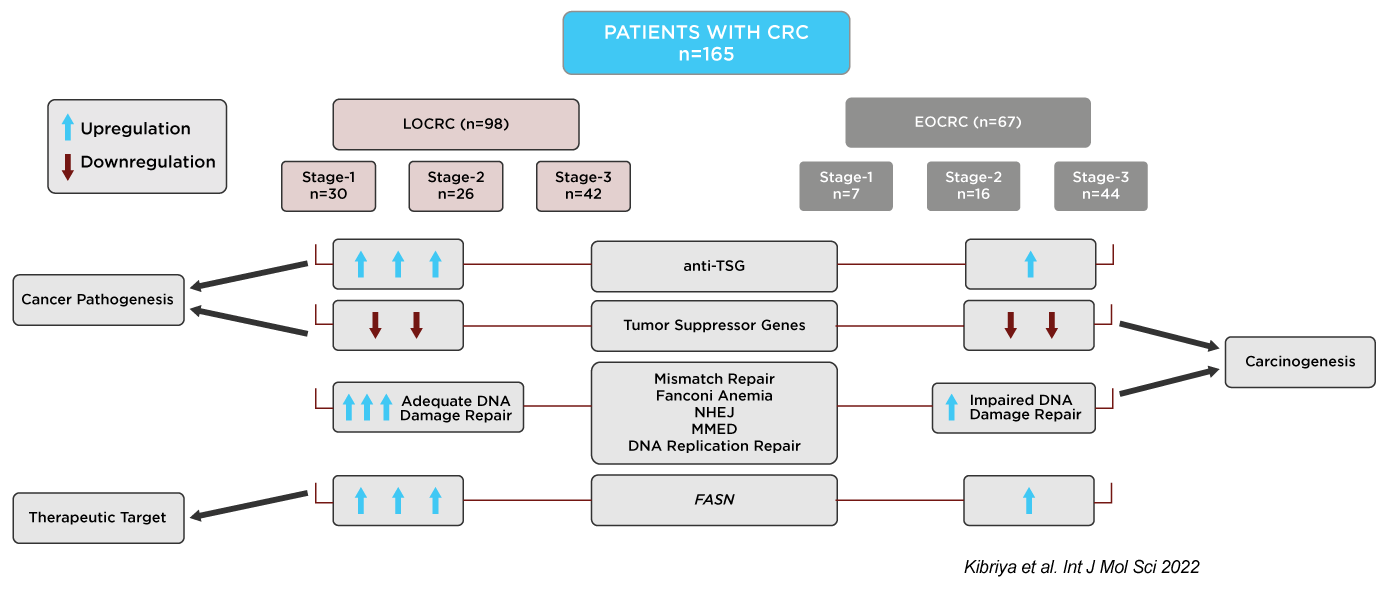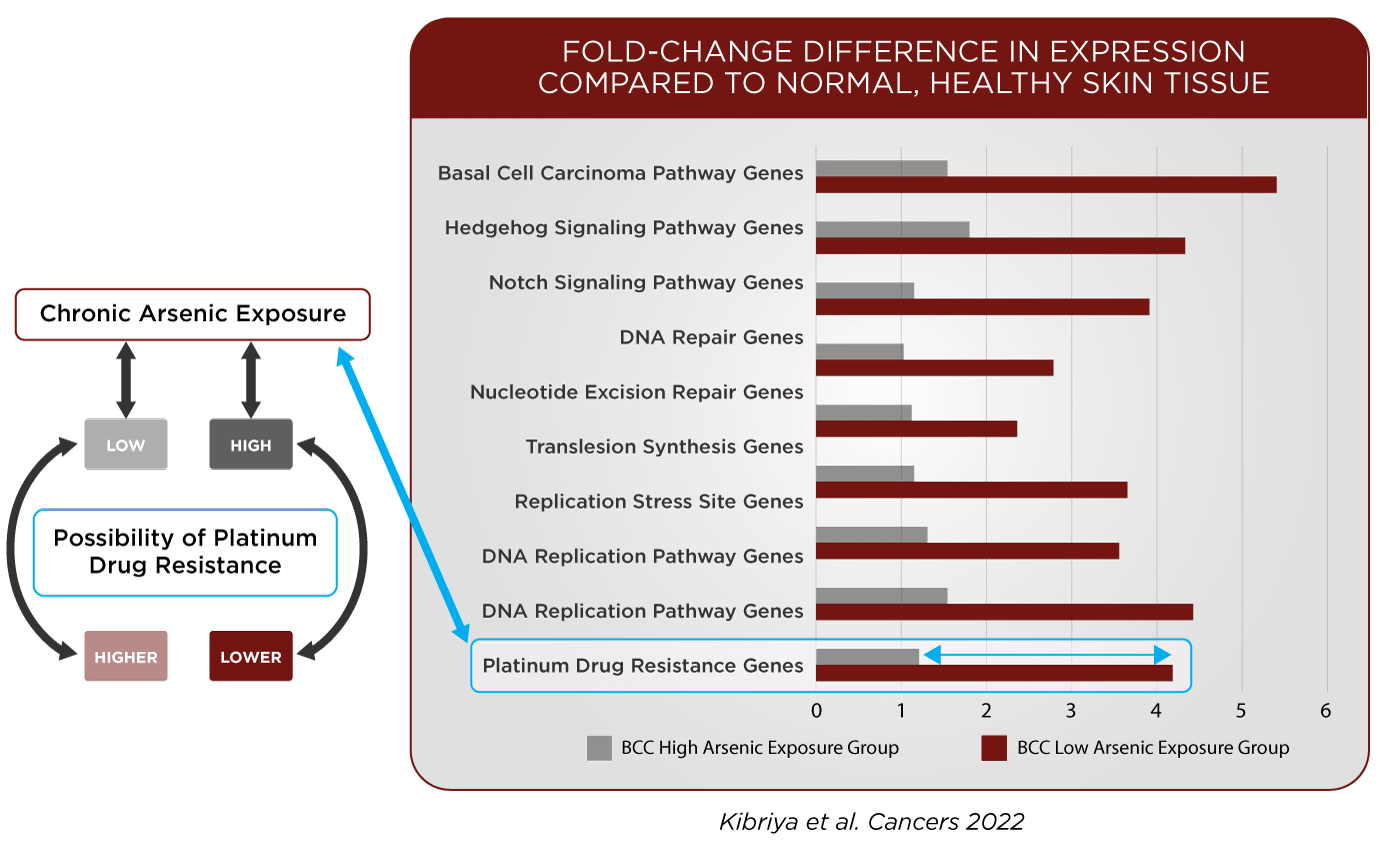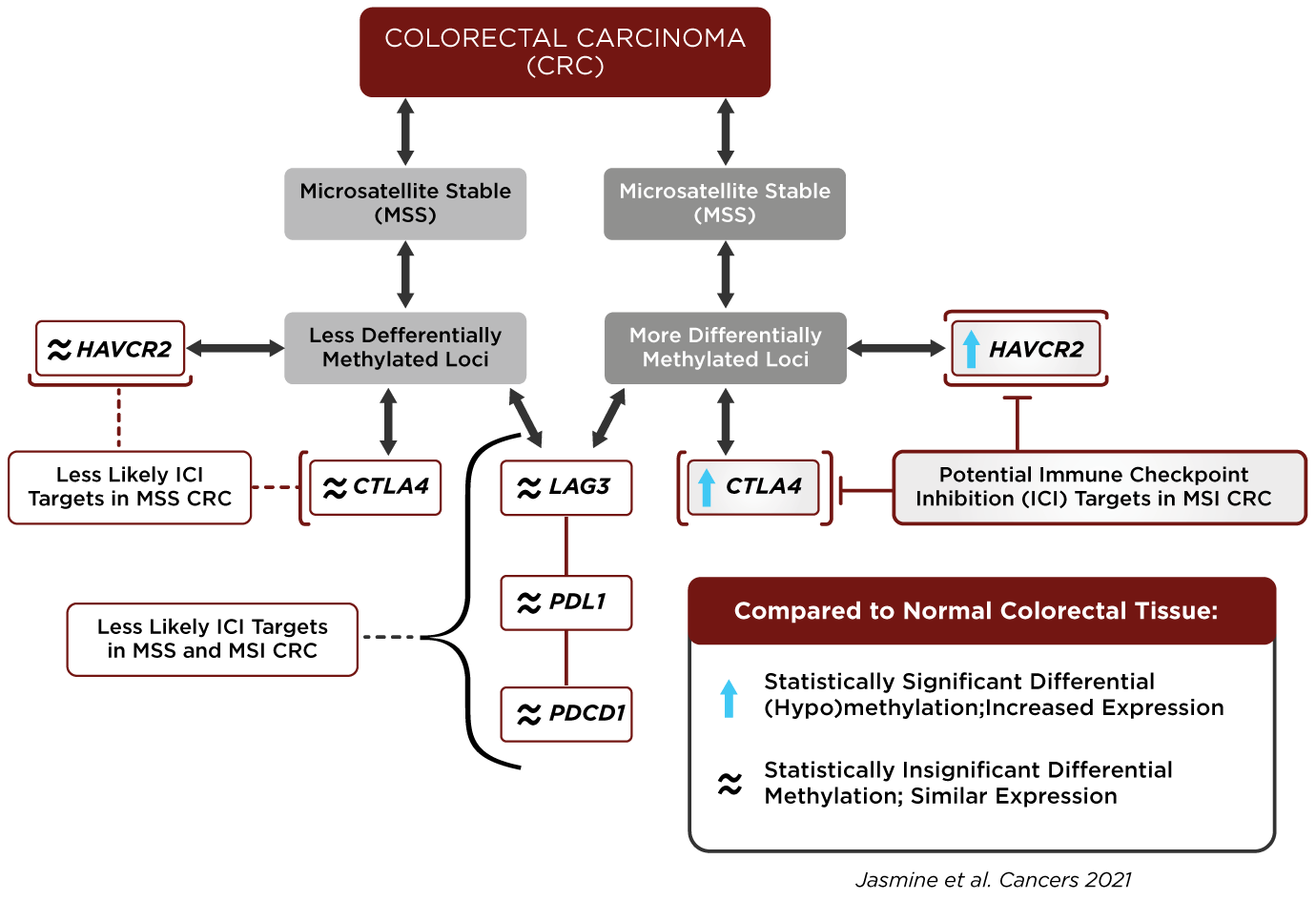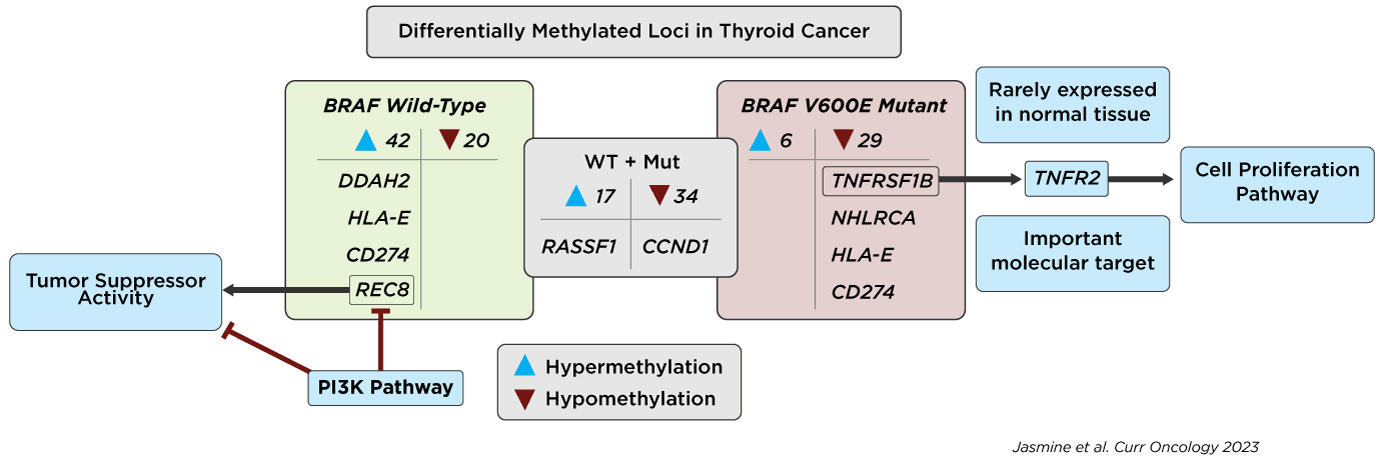PRECISION MEDICINE AND BIOMARKER STUDIES
The lab research group leverages molecular genomic analyses to shed light on biomarkers for potential therapeutic targets, which can have significant implications for individualized and precision medicine in many disciplines. These are a few of our recent studies.
PRECISION MEDICINE AND BIOMARKER STUDIES
The lab research group leverages molecular genomic analyses to shed light on biomarkers for potential therapeutic targets, which can have significant implications for individualized and precision medicine in many disciplines. These are a few of our recent studies.
PRECISION MEDICINE STUDIES
Fatty Acid Synthase (FAS) as a therapeutic target
Our study examining the molecular pathogenesis of early-onset colorectal carcinoma (EOCRC) versus late-onset colorectal carcinoma (LOCRC) shows evidence that the fatty acid synthase gene (FASN) may be a promising therapeutic target for patients with LOCRC.
TRANSCRIPTOMICS — CARCINOGENESIS — PRECISION MEDICINE TARGET
Platinum drug resistance and arsenic exposure
This study is the first to show the gene-environment interaction between arsenic exposure and the development of basal cell carcinoma (BCC). BCC patients with a history of high arsenic exposure were less likely to exhibit resistance to platinum drug therapies compared to BCC patients with a history of low arsenic exposure.
GENE ENVIRONMENTAL INTERACTION — APPLICATION IN PRECISION MEDICINE
Immune checkpoint inhibitors (ICI) in colorectal cancer
This study shows the interaction between microsatellite instability (MSI) and differential methylation of tumor DNA in colorectal cancer (CRC). Findings suggested that certain ICI such as CTLA4 and HAVCR2 inhibitors may be particularly effective against CRC in the presence of MSI.
TNFR2 may be a potential therapeutic target in BRAF mutant thyroid cancer
This is the first study to show significant hypomethylation of TNFRSF1B promoter (encoding TNFR2) in BRAF-mutant thyroid cancer patients. If confirmed by the gene expression study, this is clinically important, as it is rarely expressed in normal tissues and thus makes this very important molecular target in BRAF mutant thyroid cancer patients. In this study, the methylation status of checkpoint signaling genes, as well as the T-cell inflamed genes, suggest that BRAF mutated patients may be better candidates for PDL1 inhibitor.
READ:
Association of DNA Promoter Methylation and BRAF Mutation in Thyroid Cancer
Somatic Mutation – DNA Methylation–transcriptomics–molucular target for precision medicine
Pathways Related to Colon Inflammation Are Associated with Colorectal Carcinoma
The study findings have important implications to widen our understanding of inflammatory pathogenesis of sporadic colorectal cancer. Furthermore, targeting of several of these dysregulated pathways could provide the basis for improved therapies for colon cancer.
BIOMARKER STUDIES
SNP chip and detection of cytogenetic changes in cancer
This was one of the first studies showing the clinical utility of SNP chips to analyze chromosomal abnormalities between paired tissues — tumors and surrounding healthy tissue —from colon cancer patients. We described a simple algorithm for the detection of almost all theoretically possible chromosomal structural changes, tested it using human biopsy tissue, and explored its applications in personalized medicine.
Novel assay for telomere-length measurement
Our research group developed a novel assay for telomere length (TL) measurement that is suitable for large-scale studies due to its cost-effectiveness, throughput, and the small amount of DNA required, as well as its precision and lack of PCR amplification bias. It has been used in multiple NIH grants and publications.




